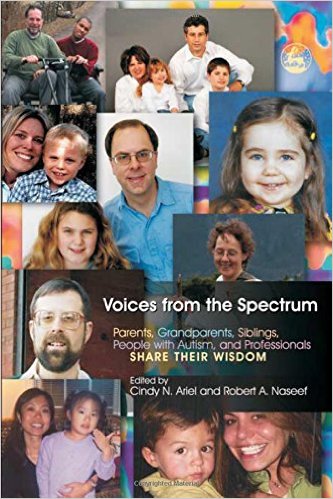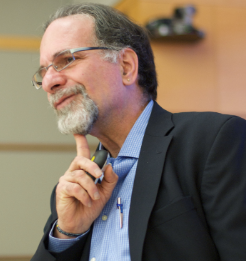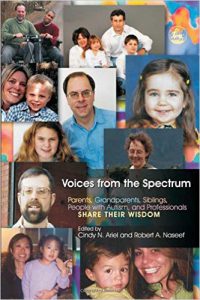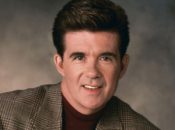
FORWARD by HAL
Many of us have read about the wave of autism and autism awareness that seems to have arisen in the 1990’s. Today, many of the autistic children we first read about (as well as other special needs kids), have become adults. If you are a parent of an adult who falls somewhere along the autism spectrum, then I am happy to introduce to you an authority on the subject and the father an autistic adult, Dr. Robert Naseef. He was kind enough to allow me to reprint a portion of one of his articles here. There are links below to the entire article as well as his books and his website.
Robert A. Naseef, Ph.D. is the author of Special Children, Challenged Parents and the co-editor with Cindy N. Ariel, Ph.D. of Voices from the Spectrum.
Visit the website of Robert Naseef, PhD and Cindy Ariel, PhD at AlternativeChoices.com
Acceptance

Robert A. Naseef, Ph.D
From: FINAL WORD, Spectrum Magazine
If It Doesn’t Mean Giving Up: What Does It Mean?
by Robert A. Naseef, PhD
I thought I could never accept my baby’s autism. After 29 years there are times when I still wonder who my son might have been. Yet it seems like only yesterday when I held Tariq for the first time. My heart pounded with excitement as I held his soft body next to my heart and our eyes met. I had visions of playing baseball and building model airplanes together.
Everything changed when the “autism bomb” hit and he began endless repetitive activities. He stopped sharing his joy of playing and stopped talking. A few years later he was diagnosed with autism and mental retardation. The impact sent family life veering sharply from the course we were on. That I would lose my perfect baby was beyond anything I could fathom. How could it be that he would grow to adulthood and not read or write or speak? I can remember believing that I would never smile or laugh again.
Parents need support and good services to come to terms with what is possible and what is not for their child. I could not have ever found peace without support. My wife Cindy, Tariq’s stepmom, weathered the storms of his autism with me and never wavered in her love. She knew autism from working in the field and helped me grasp the diagnosis I was trying desperately to deny. It took me two years before I could utter the word “autism.”
I learned deeply through my experience, what Kahlil Gibran meant in The Prophet when he wrote that joy and sorrow are inextricably woven together, for sorrow opens our hearts to the experience of joy in everyday life. Accepting that his condition would be enduring was imponderable. Nonetheless I learned the developmental approach of celebrating what he could do. This made a huge difference for our relationship. He became a happy child, and I learned to enjoy him and accept him as he was. When I played with him in the ways I thought were weird, he laughed and responded and was happy. When I constantly pushed him to look, to feel, to do the things that seem ‘typical,’ he was frustrated and cranky. The autism I hated with a vengeance refused to go away.
On the path to acceptance, I have learned many things that have helped me. My son taught me the meaning of unconditional love—to honor his sacred right to be loved for who he is, not what he has achieved lately, how he looks or how much money he will earn. I learned the lesson that hard work isn’t everything. That grief comes and goes. That anxiety and sadness come and go. That it takes time to heal a broken heart. That happiness and meaning can abound with acceptance. We don’t have to push away our painful thoughts and uncomfortable feelings.
” learned that acceptance does
not mean giving up but rather
learning to live with our
mental and physical challenges”
Click here for the full story:
https://drrobertnaseef.files.wordpress.com/2015/08/finalword_spectrum-magazine.pdf








 Sign up for the Stuff For Baby Boomers mailing list and and receive occasional updates. You will also get “Hal’s Pain In The Butt”. A humorous and uplifting account of one man’s bout with cancer through this FREE 53 page online journal in PDF format.
Sign up for the Stuff For Baby Boomers mailing list and and receive occasional updates. You will also get “Hal’s Pain In The Butt”. A humorous and uplifting account of one man’s bout with cancer through this FREE 53 page online journal in PDF format.